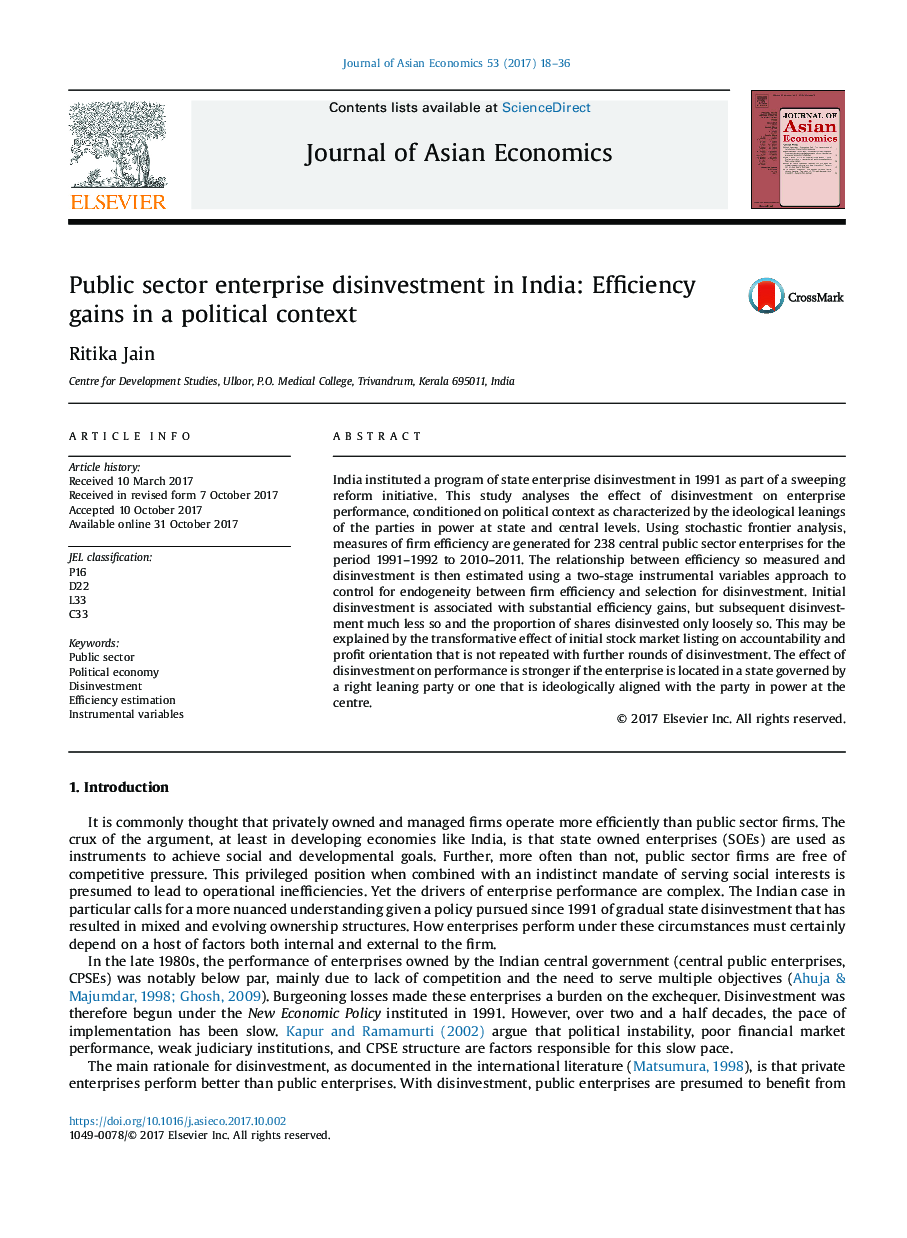| Article ID | Journal | Published Year | Pages | File Type |
|---|---|---|---|---|
| 7356431 | Journal of Asian Economics | 2017 | 19 Pages |
Abstract
India instituted a program of state enterprise disinvestment in 1991 as part of a sweeping reform initiative. This study analyses the effect of disinvestment on enterprise performance, conditioned on political context as characterized by the ideological leanings of the parties in power at state and central levels. Using stochastic frontier analysis, measures of firm efficiency are generated for 238 central public sector enterprises for the period 1991-1992 to 2010-2011. The relationship between efficiency so measured and disinvestment is then estimated using a two-stage instrumental variables approach to control for endogeneity between firm efficiency and selection for disinvestment. Initial disinvestment is associated with substantial efficiency gains, but subsequent disinvestment much less so and the proportion of shares disinvested only loosely so. This may be explained by the transformative effect of initial stock market listing on accountability and profit orientation that is not repeated with further rounds of disinvestment. The effect of disinvestment on performance is stronger if the enterprise is located in a state governed by a right leaning party or one that is ideologically aligned with the party in power at the centre.
Keywords
Related Topics
Social Sciences and Humanities
Economics, Econometrics and Finance
Economics and Econometrics
Authors
Ritika Jain,
